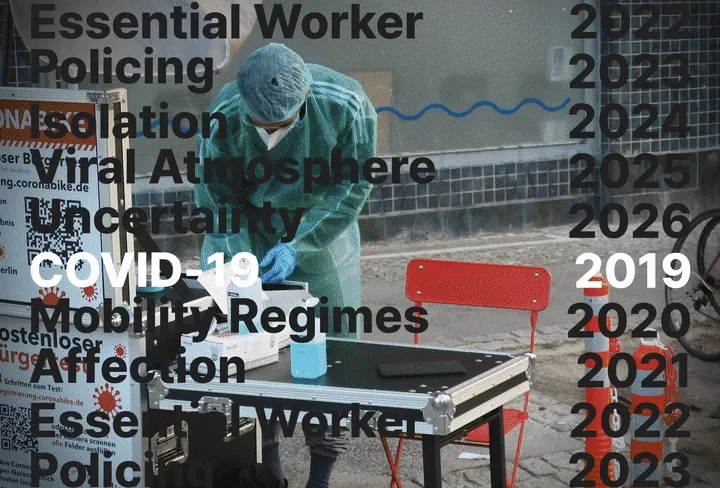Mobility Regimes of Pandemic Preparedness and Response: The Case of COVID-19
The COVID-19 pandemic dramatically shows how the emergence and global proliferation of pathogens are closely interrelated with different types of human and nonhuman mobilities. Countries are addressing the disease threat posed by the pandemic with varying approaches to restrictions and surveillance of movement with yet unknown social, economic, and political outcomes. This project argues that the individual and collective costs of immobilization – and the privileges of mobility – are distributed unevenly within and across countries. It approaches these disparities by examining pandemic preparedness and response as a mobility regime in which im/mobilities are governed by complex actors, networks, technologies, and scientific expertise.
Our project explores these mobility regimes through an ethnographic study of the diversity of lived experiences of various instances of im/mobilization in a globalized world. Our team focuses on the Democratic Republic of Congo, South Africa, Germany, and South Korea to explore how mobility regimes have emerged historically at our research sites, and how COVID-19 shapes new mobility regimes by enforcing immobilities – and granting movement – over different phases of the pandemic. These case studies offer unique insights into countries with and without previous experience with recent epidemic outbreaks, and represent a broad range of low-, middle- and high-income countries in the Global South and Global North.
Viral Atmosphere Summer School: Berlin, 21.Sep. - 28.Sep. 2025
“Viral Atmospheres: Maneuvering the affective geographies of pandemics and health”
Viral Atmosphere is a transdisciplinary summer school on the felt spaces of the Covid-19 pandemic. The concept of the atmosphere draws our attention to the ways feelings can be understood to ‘surround us,’ to be ‘poured into space,’ ‘occupy spaces’ and are influenced by space, as recent works in neophenomenology have been characterizing this concept. That is, an atmosphere is essentially a description of the felt space—a Gefühlsraum.
In our summer school, we suggest that felt spaces help us to enrich our understanding of the impact of the pandemic and the global health response to it. For instance, an isolation room may be a three-dimensional space. Exploring it as a felt space filled with feelings of anxieties, exhaustion, or ease helps us to get a grasp at the embodied experience of immobilization during the pandemic. Public spaces can be similarly conceived as felt spaces of exposure that radiate feelings of mistrust, vulnerability, and fear. Or, exploring the digital world of social media and the internet as a felt space may proffer new questions for understanding how information and also misinformation affects people.
The practical, collaborative, and transdisciplinary engagement of the felt spaces of the pandemic in our summer school attempts to move beyond the methodological nationalism’ in science and politics of pandemic preparedness and response. In spite of repeated calls for holistic One World approaches to health, research and action remain chiefly centered on the nation-state and are perhaps more than ever defined by countries of the global North. By contrast, we will explore how felt spaces allow us to trace the affective geographies of pandemics and global health. What practices of visualizing and comparing atmospheres, including artistic modes of expression, can get the affective geographies to gel? How have people in different places been experiencing and maneuvering these geographies and keep on maneuvering them as they search for a mode of remembering the pandemic? Finally, we want to ask what can be learned from these affective geographies of pandemics for future global public health emergencies.



